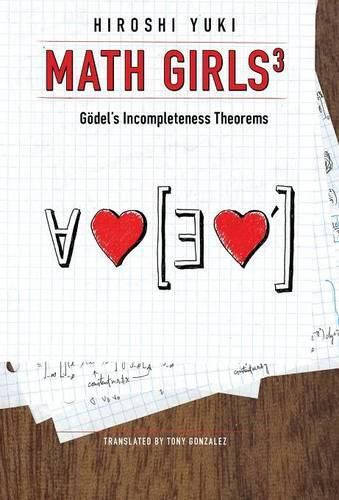Readings Newsletter
Become a Readings Member to make your shopping experience even easier.
Sign in or sign up for free!
You’re not far away from qualifying for FREE standard shipping within Australia
You’ve qualified for FREE standard shipping within Australia
The cart is loading…






This title is printed to order. This book may have been self-published. If so, we cannot guarantee the quality of the content. In the main most books will have gone through the editing process however some may not. We therefore suggest that you be aware of this before ordering this book. If in doubt check either the author or publisher’s details as we are unable to accept any returns unless they are faulty. Please contact us if you have any questions.
In the early twentieth century, a massive undertaking to rid mathematics of all paradoxes and inconsistencies was underway. Known as Hilbert’s program, it sought to provide an unshakable foundation for all of mathematics. Things seemed to be proceeding well until young Kurt Goedel stunned the world by proving that Hilbert’s goals were unobtainable, that contradiction was part of the warp and weave of any mathematical system. Yet what at the time seemed to be a fatal blow to mathematical consistency now forms the basis of modern logic. Goedel’s incompleteness theorems are often misunderstood to be a statement of the limits of mathematical reasoning, but in truth they strengthen mathematics, building it up to be more powerful than what had come before. In this third book in the Math Girls series, join Miruka and friends as they tackle the basics of modern logic, learning such topics as the Peano axioms, set theory, and diagonalization, leading up to an in-depth exploration of Goedel’s famous theorems. Along the way, visit other interesting and important topics such as trigonometry and the epsilon-delta definition of limits, and of course take on challenges from the enigmatic Mr. Muraki. Math Girls 3: Goedel’s Incompleteness Theorems has something for anyone interested in mathematics, from advanced high school students to college math majors and educators.
$9.00 standard shipping within Australia
FREE standard shipping within Australia for orders over $100.00
Express & International shipping calculated at checkout
This title is printed to order. This book may have been self-published. If so, we cannot guarantee the quality of the content. In the main most books will have gone through the editing process however some may not. We therefore suggest that you be aware of this before ordering this book. If in doubt check either the author or publisher’s details as we are unable to accept any returns unless they are faulty. Please contact us if you have any questions.
In the early twentieth century, a massive undertaking to rid mathematics of all paradoxes and inconsistencies was underway. Known as Hilbert’s program, it sought to provide an unshakable foundation for all of mathematics. Things seemed to be proceeding well until young Kurt Goedel stunned the world by proving that Hilbert’s goals were unobtainable, that contradiction was part of the warp and weave of any mathematical system. Yet what at the time seemed to be a fatal blow to mathematical consistency now forms the basis of modern logic. Goedel’s incompleteness theorems are often misunderstood to be a statement of the limits of mathematical reasoning, but in truth they strengthen mathematics, building it up to be more powerful than what had come before. In this third book in the Math Girls series, join Miruka and friends as they tackle the basics of modern logic, learning such topics as the Peano axioms, set theory, and diagonalization, leading up to an in-depth exploration of Goedel’s famous theorems. Along the way, visit other interesting and important topics such as trigonometry and the epsilon-delta definition of limits, and of course take on challenges from the enigmatic Mr. Muraki. Math Girls 3: Goedel’s Incompleteness Theorems has something for anyone interested in mathematics, from advanced high school students to college math majors and educators.